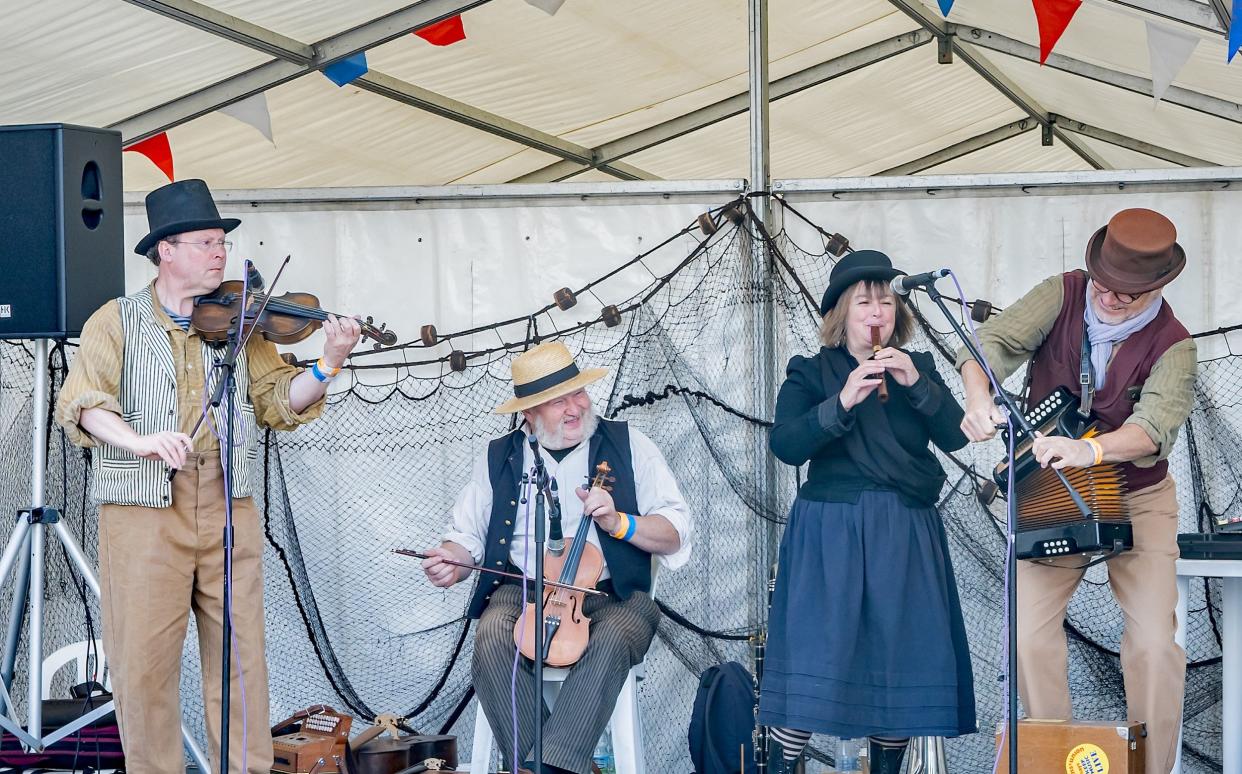‘White-centricity’ of folk music investigated in £1.5m academic study

Almost £1.5 million in taxpayer funding has been awarded to a research project that aims to “decolonise” folk singing.
Taking place at the University of Sheffield, researchers “will take an unflinching look at the white-centricity of folk music repertory, performers and audience by conducting fieldwork to shed light on long-standing vernacular singing practices of ethnic minority cultures in England”.
They then hope to “increase accessibility to the folk club scene and take the first step in a process of decolonisation within the folk music canon”.
The project has been awarded £1,485,400 from the taxpayer-funded UK Research and Innovation (UKRI), under its “future leaders fellowship’’. It has also been granted extra funds on top of this from bodies such as Research England (which also falls under the remit of UKRI).
Researchers describe one of their methods as, “ask a friend”, which “involves community researchers interviewing acquaintances”. The lead investigator also says that she has made “systematic reflections on music published throughout my career and how they relate to various notions of Englishness”.

Prof Dennis Hayes, director of Academics for Academic Freedom, told The Telegraph: “Journalists will be pleased to know that there will be an endless supply of stories about disciplines being told by universities to ‘decolonise’ and of money being spent on studies of ‘whiteness’ in any and every conceivable subject.
“The reason for this is institutional groupthink in universities. Universities have adopted the need for decolonisation, and the victim hierarchy of intersectional theory, as essential to upholding their inclusive values. This groupthink is a threat to academic freedom. It silences almost all opposition as academics fear being charged with racism if they speak up against being told what to think.
“But the only solution is for academics to speak up and put in the time-consuming work on university committees and at university meetings where they can challenge institutional groupthink.
“Academics For Academic Freedom (AFAF) branches know that once a lone academic speaks up, they will soon find they are not alone.”
Joanna Marchong, investigations campaign manager of the TaxPayers’ Alliance, said: “Taxpayers are fed up with research councils marching to the beat of their own drum and ignoring all concerns for value for money.
“Time and time again, these institutions force hard-pressed households to pay millions for academics to rewrite history and achieve minute goals in return.
“The next government needs to clamp down on research councils to ensure that only worthwhile projects are being greenlit and that any funded research will be of value to taxpayers.”
A UKRI spokesman said: “UKRI invests in a diverse research and innovation portfolio. Decisions to fund the research projects we support are made via a rigorous peer review process by relevant independent experts from across academia and business.
“UKRI’s future leaders fellowships provide long-term support to enable fellows to break down barriers, tackle ambitious programmes and multidisciplinary questions, and to build new research and innovation areas and partnerships. The fellowships are open to applicants with a wide range of career paths, from all disciplines, based in businesses, universities and other research organisations. The aim of the scheme is to develop the next wave of world-class research and innovation leaders.”
Fay Hield, professor of music at the University of Sheffield, said: “The term decolonisation is often misinterpreted. Our research highlights the different under-recognised communities who have helped to establish cultural life in England. Folk music is a constantly evolving genre, which has taken influences from a diverse range of people over centuries. It is part of the UK’s cultural heritage and should be celebrated. Our aim is to break down the barriers for people to get involved in folk music. Opening up the genre to different audiences will help to sustain the nation’s folk music for decades to come.”

